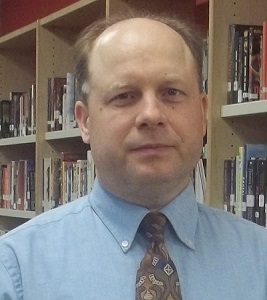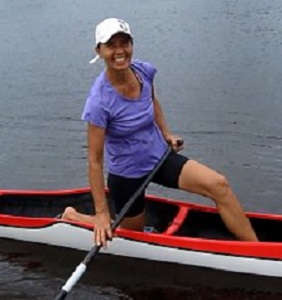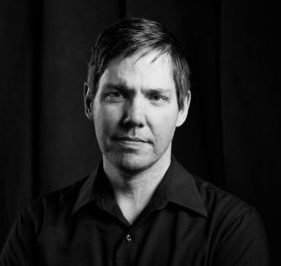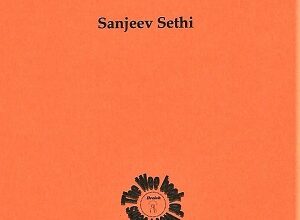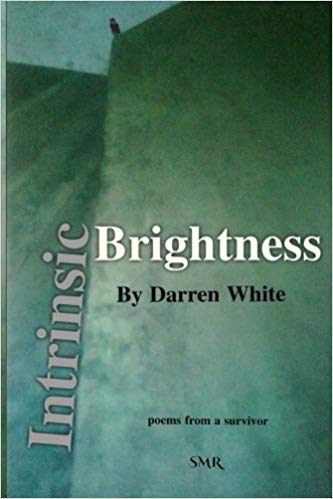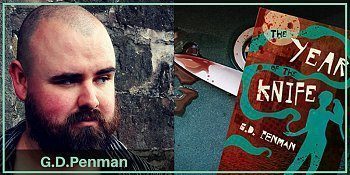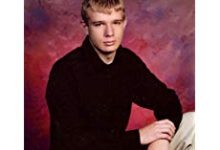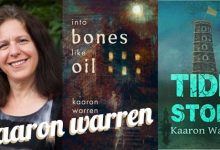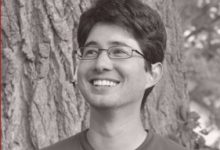Author Interview – Susan Coleman
Susan Coleman is an American fiction writer living in Kansas. To date, she has published two books on Amazon – ‘Surviving Nathan‘ and ‘Alleghey Shade‘
Hello Sue, thank you for agreeing to this interview. Can you tell us a little about yourself and your background?
I was born and raised in Chicago, Illinois. I left when I married, at nineteen. In the following ten years, I lived in two different states and had four children. Eventually, we lived in seven different states. My education includes pre-nursing and paralegal studies, with an occasional creative writing class. I currently live in Overland Park, Kansas and have been here since 2015, when I retired from working life. I have written fiction most of my life; published one story, Gone Visiting, in 1993, in the now-discontinued Dogwood Tales magazine.
Publishing is a big step for most writers. Can you briefly explain your own experience of the process and any advice you have?
I am a prolific writer and once I began to see that what I was writing was turning into a book, the next step was to try to be published. I have two books available through Kindle on Amazon, but I admit that Amazon was not my first choice. I had spent many years searching for a publisher but was not successful. I then turned my attention to agents, but again, was met with defeat. The process on Amazon is amazingly simple; almost too simple. Someone asked me, “but how do you know if it’s good?” And that’s the difference; there are no qualifiers.
My advice to anyone pursuing publication is to keep trying, but take the time to think about what your goals are. In your search for support, you will easily see that the publishing industry is a fast-paced, difficult place to be in, so it is smart to figure out what you want before you even begin. There was a point with Surviving Nathan, where I became involved with an organization that took me all the way up to being able to actually publish the book in hard copy.
We only had email communication; they were located California, I was in the Midwest. I had been working for weeks with an editor who seemed to have some creative and wonderful ideas on the direction my book could go and I did everything she told me to do. We were ready to select a cover, when I suddenly got an email from the marketing department at the company, saying they were in financial trouble and if I wanted my book back, I would have to send them a lot of money, which I didn’t have. I hired an attorney and eventually got my rights back, but it was a cruel lesson learned. I had told everyone I was going to be published and had planned on giving books as gifts for the upcoming Christmas.
I was devastated, and it was only after that I finally did research on this company and found they had a long history of bilking authors out of their work. I was very naïve. I actually found their physical address in California, where I could send them a registered letter. I received the receipt back with an employee signature, but then a few weeks later, received my letter back with a “no such address” stamped on it. It had not been opened. I contacted the Chamber of Commerce for the city and this publisher was not listed as a business in that city.
My point in telling this, is to warn everyone to be careful. If you are pursuing traditional publication of your book, take the time to research the people or agencies you are dealing with. Take the time to read up on what is appropriate and what isn’t, especially when it comes to a contract. Don’t be naïve; be knowledgeable.
The murder mystery genre seems to draw its fair share of female authors. Do you have any thoughts on why this is the case?
I think the types of mystery stories that are told by women are different from the Mikey Spillane genre that has been dominated by male authors. I think women bring more everyday characters to their stories, and we get a lot more than just a murder/mystery. We get the family, friends and other relationships that all become involved in the story. It’s like a different category altogether. I’m thinking of Sue Grafton and her alphabet murder books, or even the late Agatha Christie.
What came first in your plot line for ‘Surviving Nathan’ – the setting, the type of murder, the victim or the murderer?
Actually, it was the setting. I have always been intrigued by the Dust Bowl and the strength of people to survive the most cataclysmic events. Having said that, the real thing that kick-started this project was a question I posed to myself – could a really good person commit murder? It was a time when there seemed to be a lot of murders committed by people who no one would suspect.
A neighbor who waved every morning, or the son of a well-liked couple who caused no trouble. I wondered how that could be. Were really good people still somehow capable of committing a crime, even though all of their basic instincts told them it was wrong? The main character in Surviving Nathan is a woman who spent her life taking care of others. She is that good woman everyone loves, but under certain circumstances, I decided, even she may be capable of doing things that are against her nature.
What is your ideal environment for the process of writing?
I write on a laptop in my living room. I sometimes listen to Celtic music, especially if the mood of what I am writing is sad or grim. But I do well in silence too. I love writing in the morning, but that means I can still be in my pyjamas at two! I do not drink when I write because the typos are horrendous.
Which writers or books have inspired you?
One of my favorite authors is Stephen King. And not for the reasons you might think. He is a master at creating relationships between people. Anyone can do a casual friendship, but Stephen King is exceptional in his ability to blend people together, and paint them as being loyal and true to each other without being unrealistic. And we always know why. So many stories have unlikely friends being true to one another, without any clue as to why or where the relationship began. King’s ability to give his characters a background that makes sense is awesome. He has had a huge impact on my ability to create characters that people care about – loyal to a fault.
In your experience, what is the hardest aspect of writing fiction?
The hardest aspect for me is making sure my writing is genuine and consistent, especially if the project is a long one. I don’t typically use an outline, but I do write “back stories” for my characters, particularly if they are in unfamiliar waters. I need to know how they will respond to any situation that comes their way.
It’s also a challenge for me to figure out how much of that back story should be included in the main tale. I am always asking myself, “Do my readers want/need to know this?” I have a tendency to over explain, over-describe, so when I am editing, I have to keep my focus on what is relevant and important. Sometimes that is not easy, especially if I feel it is good writing. Good or not, it has to go if it just isn’t necessary.
If your novel ‘Allegheny Shade’ were made into a film, which actors would you choose to play the main characters, and why?
The main female character in Allegheny Shade is a newspaper reporter who finds herself in an abandoned, land-locked mansion in the middle of a snowstorm. She and co-worker, David, arrive together. They were sent on assignment to investigate unusual lights that had been seen by local townsfolk, in a mansion that has not been lived in for many, many years.
My character is young and strong-willed, so I could see someone like Mandy Moore, or Eleanor Tomlinson from the Poldark series on PBS. As far as David, who is a very self-centred and cavalier individual, I could see someone who is known for his mean or evil roles.
And what music would you choose for the soundtrack?
I love old time rock and roll. In Allegheny Shade, I could see “Heartbreak Hotel,” or really anything from that generation of music.
Do you have a favourite saying or quote?
I try to create sympathy for my characters, then turn the monsters loose. – Stephen King
Do you have the support of an agent, editor, proofreader etc?
I had my family, of course. I am blessed that all of my children are well-educated and able to critique anything I write. On the other hand, I know that it would be difficult to tell your mother what she writes is not good, so I did ask friends also, and some people I barely know to give a read. I am blest to have such a supportive group of people in my life.
Your novels, mentioned above, are set in the early 20th century. What draws you to this period?
Even though I love history, I also love the idea of creating a character who witnesses things from a different perspective than we have already heard. When I was writing Surviving Nathan, it was very difficult to find out what families were like during those years, living in poverty. Were parents more harsh with their children, more lenient, or somewhere in between?
My research allowed me to discover a lot about why the dust bowl happened, but not a lot about family life (new perspective), except they were all in need. So I was creative and tried to incorporate all possibilities, using common sense. A back story for one mother was that she was raised with cruelty, so it was easier for me to imagine how she treated her own children. Another mother was raised by a school teacher, a kind man that she adored, so she was able to be a gentler parent.
I love eras where there are no distractions of technology. In both of my books, technology was not relevant and I preferred to focus on the story without such devices. Maybe that’s another reason why I like history – focus! And I think it’s also easier to find stories in history to write about. I once read a report about how soldiers from the Civil War often died as they made their way home, and because there was no mass communication then, their families never knew what happened to them.
Many bodies were found in cornfields, woods, along the side of the road, years later. So I wrote a story about what that was like, about a young soldier trying to find his way back home and dying either from starvation, or injury. I am intrigued by stories that have not been told.
Have you travelled? If so, what is your favourite destination?
I have not travelled outside of the States, but have been to Hawaii three times. Would love to be a beach bum there!
Is there another destination on your wish list?
I would love to be able to go to Ireland someday.
Do you like poetry?
Not really.
The covers of your books are rather striking. How did they come about?
Both covers for Allegheny Shade and Surviving Nathan were provided by Kindle.
Any hobbies outside of writing?
I am a prolific knitter and I crochet. I was taught to knit when I was eight by a Holocaust survivor in Chicago. I taught myself to crochet as a young adult with small children. I still do one or both every day and they provide me with much comfort. Many dilemmas in my writing were resolved over my knitting needles. LOL. I give away much of what I make. I also make prayer shawls. (www.gsknits.weebly.com)
Are you working on anything at the moment?
I am! My oldest daughter has asked me several times to write the story of my life, but I decided instead to make it fiction. My current story is of an older woman who lives in an apartment building in the same neighborhood I grew up in, in Chicago. Her name is Margaret O’Connor (had to be Irish) and her large family, who also all live in Rogers Park, call her “Maggie.”
They attend the church I attended as a child, and go to the same small restaurants I knew growing up. The story, so far, is that Maggie has made friends of a man who lives in her building and one evening, when they were expected to have dinner together in his apartment, she finds him dead in his bed. Of course, that didn’t happen to me in my life – ha ha – but the setting for this book is home, and I am have a lot of fun writing it.
Where can the readers find out more about you and your work?
I have a website – www.susancolemanwrites.com – and I try to incorporate as much information as I can. Since I don’t have a lot of writing credentials yet, I have written stories about my mother, about growing up in Catholic School (“My Sister Mary Story”) and the impact one nun had on my writing development. A bio about myself. I also have a blog on that site.
Is there anything else you wish to say to the readers?
Even though I have been writing since I was a child, it is just recently that I have had the time to devote to exploring the possibility of being published. It was not an easy choice to use Amazon as an option, but I hope the medium is successful going forward. I want to thank everyone who has taken the time to read my books and I hope they enjoy the one I am working on now, when I put that one on Amazon too.
Thank you for this opportunity to share my story.

